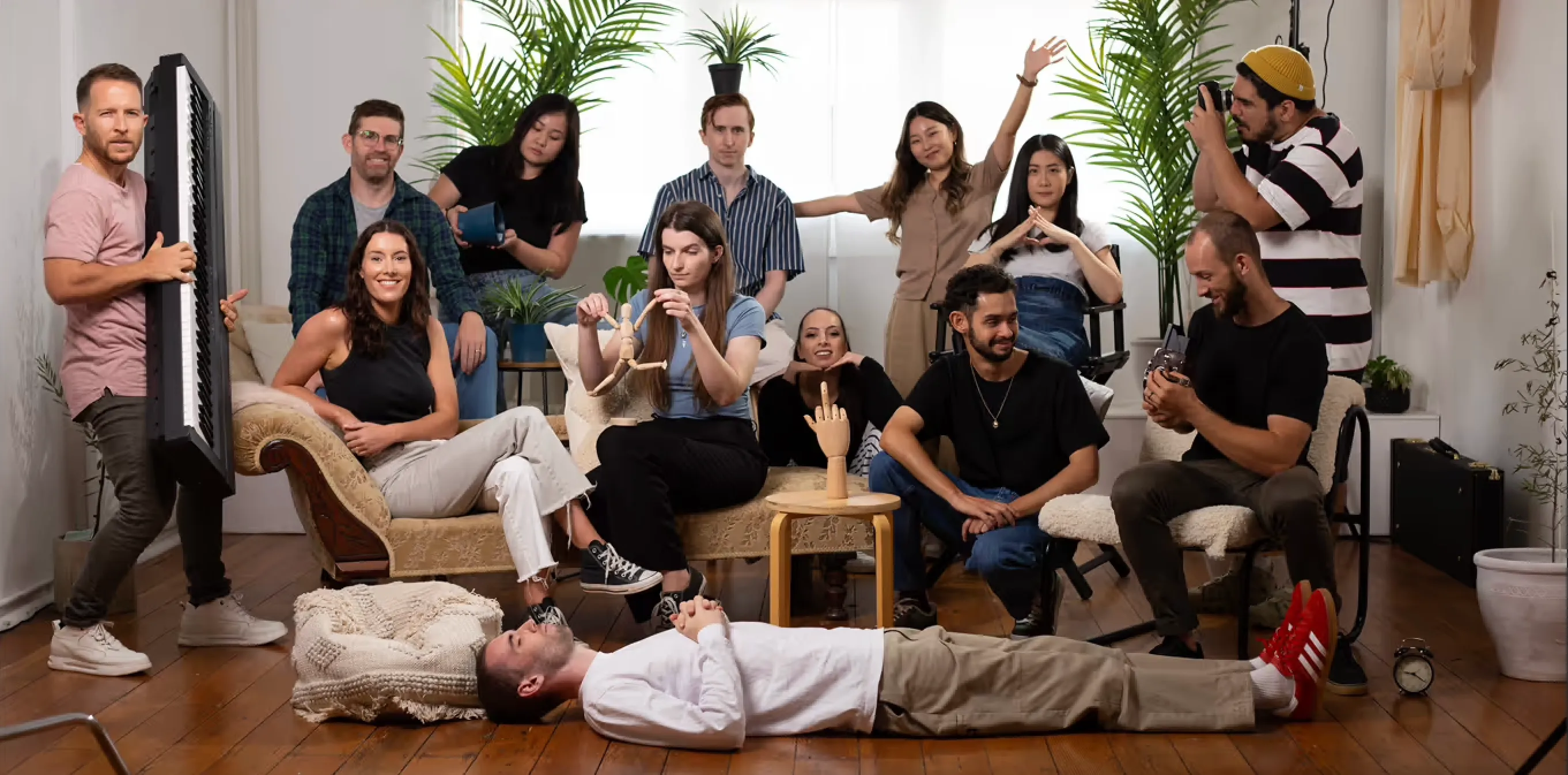In today’s fast-paced content world, the difference between good and great often comes down to how the work is made. When your video content is created by an in-house team, the benefits ripple through every frame.
Here’s why in-house video production makes all the difference:
1. Aligned From Day One: One Team. One Vision.
When everyone involved in your video project is working within the same team – from pre-production planning to final edits – creative clarity is a given. No cross-continent handovers. No gaps in communication. Just one crew with one goal, speaking the same creative language.
In a competitive content environment, that internal alignment means fewer compromises, faster decision-making, and clearer creative execution.
2. Agility Without Compromise
Need to re-shoot a scene tomorrow? Tweak a VFX shot before the campaign goes live? An in-house team can pivot quickly without sacrificing quality. Because the crew is already onboard, adjustments happen in real time, not on someone else's calendar.
For Brisbane-based businesses, this kind of responsiveness can be the difference between hitting a campaign deadline or missing the moment entirely.
3. Commitment That Shows
Every member of an in-house team has skin in the game. They’re not just freelancers on a spreadsheet – they’re invested collaborators who care about the outcome. At IPER, every shoot is personal. Every video reflects our name and our standards.
This leads to a culture of ownership and pride, where people aren’t just meeting a brief – they’re pushing to make the work better.
4. Collaboration Without the Clutter
When your cinematographers, editors, directors, and motion designers are already working side by side, things click. Editors understand what was captured on set. Directors shape the story knowing exactly how it will be animated. Creative cohesion happens by design, not by chance.
Fewer middlemen means clearer feedback loops and stronger storytelling.
5. Brisbane Built, Internationally Ready
IPER is proudly based in Brisbane, but our work plays on an international stage. Our local roots help us move quickly and understand the nuances of Queensland businesses, but our experience stretches across industries and platforms – from agency work to branded content and social campaigns.
With a team that’s both local and widely experienced, we bring sharp, scalable execution to every brief.
The Bottom Line
An in-house production team offers more than convenience – it unlocks creative control, consistent quality, and delivery at speed. At IPER, we build every project in-house, backed by a crew that’s all in from the start.
If you're looking for video content that feels cohesive, compelling, and crafted with intent, start with a team that’s already aligned.
Want to see how we work?
Explore more at iper.com.au
Or follow the behind-the-scenes action at @iper_au





